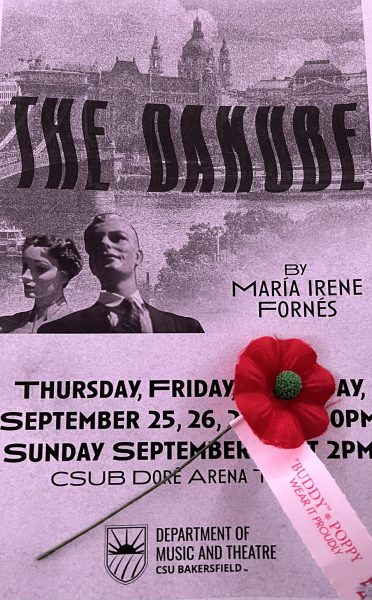ASI candidates learn to campaign
Leo Garcia/The Runner/ ASI Executive Vice President Alejandra ‘’Olly’’ Lopez goes over the important deadlines on March 6 in the Student Union.
March 14, 2019
This year the Associated Students, Inc. will be providing students free campaign kits, which include 20 posters and 40 handouts to support campaign efforts.
On March 6, ASI board members Executive Vice President Alejandra “Olly” Lopez, Director of Marketing Joselito Flores and Director of L.E.A.D Jorge Zamora hosted a workshop on “How to run your campaign.” The board members talked about things candidates should consider when preparing their campaigns, as well as some of the main issues that students need to be aware of when running for elections.
Zamora talked about important dates of the campaign process and other requirements that candidates need to meet as part of the campaign code.
“The candidate filing period ends on March 22 at 11 a.m. That same day, all candidates will have a mandatory meeting from 1 to 2:30 p.m. Once the meeting is over, students can begin their campaigns up until April 4,” said Zamora.
However, before campaigning, candidates running for elections must go over the campaign code to make sure they follow every step of the process.
According to Lopez, in order to run for executive positions, students must have attended two board of directors meetings and two ASI committee meetings, or have two professional letters of recommendation by faculty or employer, which have to be approved by the ASI executive director and the elections coordinator, Jason Watkins.In addition, candidates must attend the debate on April 2.
For director positions, candidates do not have to debate. Instead they get two minutes during the event to introduce themselves and present their campaign platforms.
Furthermore, Lopez added that students cannot have endorsements with any campus department or current board members. She also said that students can disclose if they are considering running for elections now. However, they cannot announce the position they are running for or any other details regarding their candidacy until after the orientation meeting, where the official candidates will be announced on March 22. Otherwise, they would be violating the elections code and they could be disqualified.
When it comes to campaigning, Lopez said that candidates can work with other students that are also running for other ASI positions and support each other. However, students need to make sure that anyone who volunteers in their behalf does not violate the elections code. Otherwise there can be consequences for the candidates.
Throughout the process, candidates will have designated places to promote their campaigns. Some places where candidates are not allowed to place posters include the Science 3 building, bathrooms, cars, trashcans, trees, floors and any other undesignated areas.
“Students need to get approval from [Watkins], who is the elections coordinator, before putting their posters up. In addition, depending on where the posters are placed, they may need additional approval from the person in charge of overseeing the designated area,” Zamora said.
On the other hand, Flores said that some of the most important things when preparing campaign material include having a good headline, giving students a good first impression and informing students to vote.
Flores talked about other details to keep in mind when preparing campaign posters such as the typography- fonts, bold titles, choosing the right picture and even considering the appropriate colors to wear when giving a presentation.
Flores also stated that something extremely important is the way candidates carry themselves and the way they interact with everyone, including their opponents.
“It is really important to be respectful to one another. Don’t badmouth anybody. Remember that we are all students, we are all trying to be the voice of each other and we are all just trying to help the campus in general,” Flores said.
Lopez advised prospective candidates to create a feasible platform and to be honest with their vision and goals. According to her, students really value honesty and everything they say can impact their credibility and the organization’s image in general.






